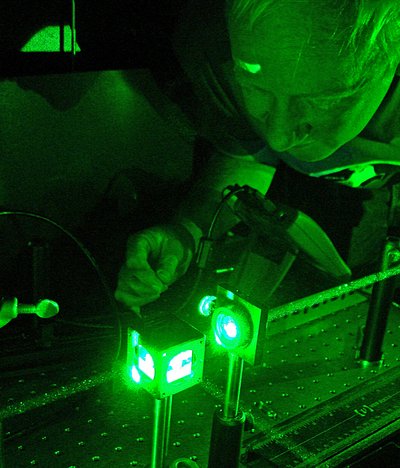Nico Dam
Department / Institute
Group

RESEARCH PROFILE
Nico Dam is an Associate Professor and Chair of Laser Diagnostics for combustion in the department of Mechanical Engineering at Eindhoven University of Technology (TU/e). His key areas of expertise include optics, lasers, (high resolution) spectroscopy, fuel technology, atomic physics and molecular physics. Tuition subjects include experimentation for mechanical engineering, optical diagnostics for combustion and fluid flow, and physics and measurement methods. Current research focuses on Raman spectroscopy, spray diagnostics and temperature field measurement.
Optical diagnostics in principle allows you to learn everything about everything.
ACADEMIC BACKGROUND
Nico Dam studied Physics (major Experimental Molecular Physics) in Nijmegen, and obtained his PhD at the same university, on the topic of collisional energy transfer in small molecules. Subsequently, he worked on metal cluster spectroscopy as a post-doc at the EPFL in Lausanne, CH, and later as a KNAW fellow back in Nijmegen. He has been working on the development of laser techniques for the quantitative 2-D visualization of reactive and non-reactive flows since 1995, initially at the Radboud University Nijmegen, and since 2008 at the TU/e.
Key Publications
-
P.C. Bakker,N. Maes,N. Dam
The potential of on- and off-resonant formaldehyde imaging combined with bootstrapping in diesel sprays
Combustion and Flame (2017) -
Ahmed Elkholy,Sander Nijdam,Eddie M. van Veldhuizen,Nico Dam,Jeroen van Oijen,Ute Ebert,L.P.H. de Goey
Characteristics of a novel nanosecond DBD microplasma reactor for flow applications
Plasma Sources Science and Technology (2018) -
M. Izadi Najafabadi,L. Egelmeers,B. Somers,N. Deen,B. Johansson,N. Dam
The influence of charge stratification on the spectral signature of partially premixed combustion in a light-duty optical engine
Applied Physics B: Lasers and Optics (2017) -
M. Izadi Najafabadi,S. Tanov,H. Wang,L.M.T. Somers,B. Johansson,N.J. Dam
Effects of injection timing on fluid flow characteristics of partially premixed combustion based on high-speed particle image velocimetry
SAE International Journal of Engines (2017) -
M. Izadi Najafabadi,B. Somers,B. Johansson,N. Dam
Combustion stratification study of partially premixed combustion using Fourier transform analysis of OH* chemiluminescence images
International Journal of Engine Research (2018)
Current Educational Activities
Ancillary Activities
No ancillary activities